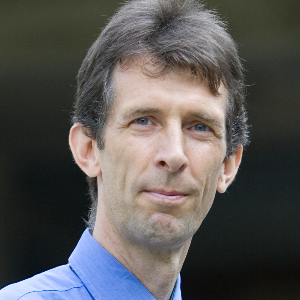


Policy practitioners and leading scientists working at the science-policy interface will meet at the 2019 IAP Conference ‘Science and the Sustainable Development Goals: The Role of Academies’ (9-10 April 2019) in Incheon, Korea.
Nearly 200 leading scientists, policy practitioners, and delegates from some 60 science, health and engineering academies from around the world are scheduled to attend the 2019 IAP Conference ‘Science and the Sustainable Development Goals: The Role of Academies’ taking place in Incheon, Korea, at the Sheraton Grand Incheon Hotel (9-10 April 2019).
The conference will be hosted by the InterAcademy Partnership (IAP) – the global network of national science, medical and engineering academies – in collaboration with the Korean Academy of Science and Technology (KAST).
This meeting will explore how science can underpin and help to advance progress towards achieving the 17 goals of the United Nations (UN) Agenda 2030, and in particular, what role academies and the scientific community at large can – and should – play towards achieving these goals. It will draw on the learnings of the IAP-Carnegie report “Improving scientific input to global policymaking, with a focus on the UN SDGs”, which will be released next month.
Participants will also advance discussions on the role of academies in the 21st Century and how they should evolve to respond to today’s pressing sustainable development challenges and to strengthen evidence-informed policymaking at global, regional and national levels.
Participants include distinguished scholars and leaders of national and regional academies, as well as policymakers and advisors from high-, middle- and low-income countries.
“The conference will highlight how the UN’s SDGs are being implemented at global, regional and national levels, and the opportunities these present for the academies to better play their part. Whether they are large or small, new or old, their actions are critical because policy design and implementation generally takes place at the national level,” says Professor Volker ter Meulen, IAP president and IAP for Science Co-chair.
“To fulfill their potential to support the implementation of the SDGs, national science academies need to shift from working for society to working with society, openly and inclusively. They must bridge the gap between knowledge production and knowledge use, push for evidence-informed policies, and help build a sustainable planet,” adds Professor Depei Liu, IAP President and IAP for Health Co-chair.
It is anticipated that the outcomes of this Conference will be reported at the upcoming Fourth UN Multi-stakeholder Forum on Science, Technology and Innovation for the SDGs (STI Forum), which will convene in New York, US, from 14-15 May 2019. The deliberations of the STI Forum will feed into the UN’s High-Level Political Forum (HLPF) in July 2019 where progress on the SDGs will be formally reviewed in the run up to a meeting of the UN Heads of State in September.
The conference will be followed by the IAP General Assembly, a closed session for representatives of IAP member academies held every three years to define the next strategic planning period.
More about the InterAcademy Partnership
Under the umbrella of the InterAcademy Partnership (IAP), more than 130 national and regional member academies work together to support the vital role of science and its efforts to seek solutions to the world’s most challenging problems. IAP’s member academies are merit-based and typically independent of government, allowing them to provide authoritative evidence to inform policy and decision-making. IAP member academies represent more than 30,000 of the world’s most respected scientific, medical and engineering leaders in over 100 countries across Africa, the Americas, Asia-Pacific and Europe.
For more information see www.interacademies.org and follow @IAPartnership on Twitter.
